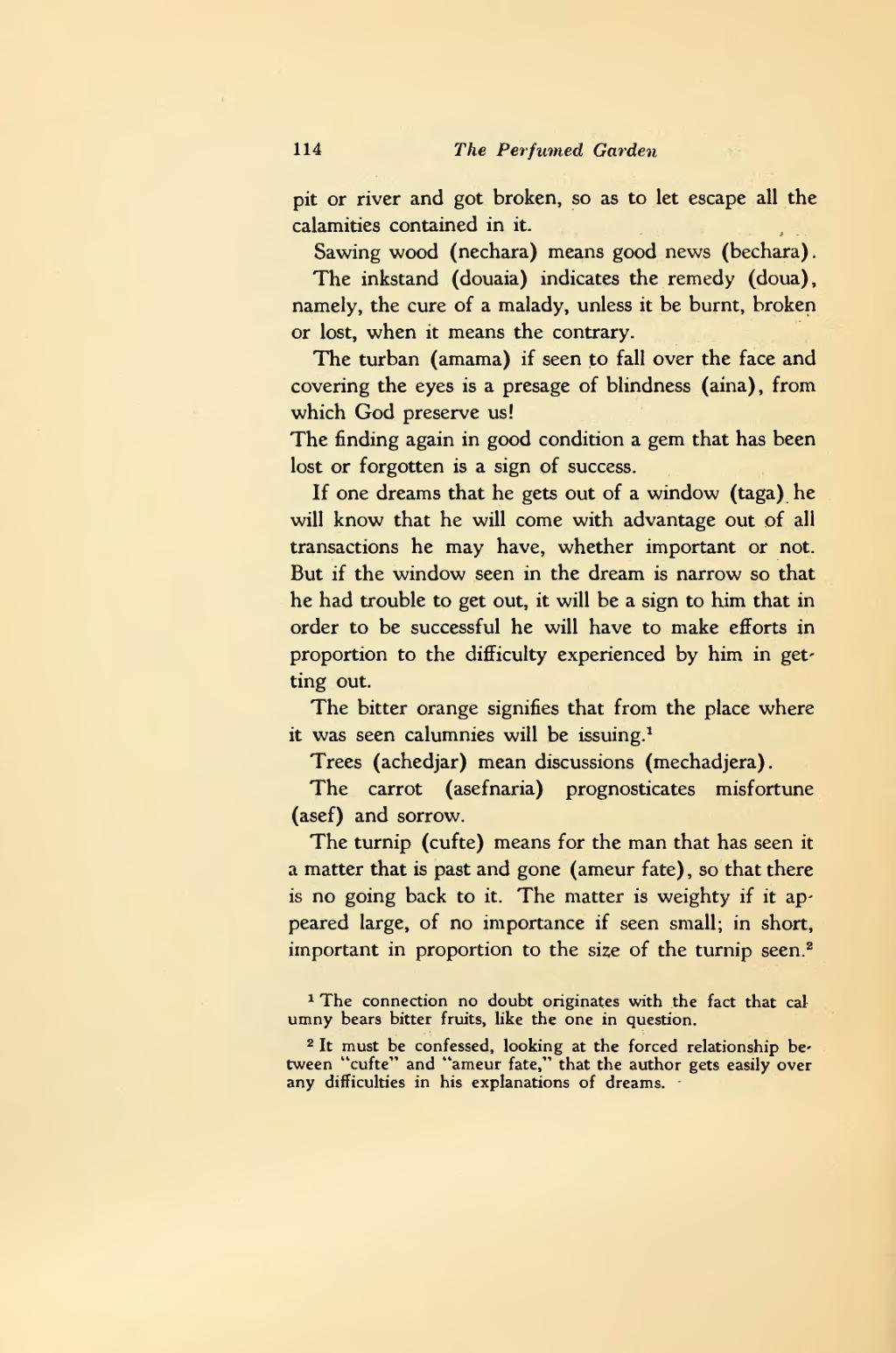pit or river and got broken, so as to let escape all the calamities contained in it.
Sawing wood (nechara) means good news (bechara).
The inkstand (douaia) indicates the remedy (doua), namely, the cure of a malady, unless it be burnt, broken or lost, when it means the contrary.
The turban (amama) if seen to fall over the face and covering the eyes is a presage of blindness (aina), from which God preserve us!
The finding again in good condition a gem that has been lost or forgotten is a sign of success.
If one dreams that he gets out of a window (taga) he will know that he will come with advantage out of all transactions he may have, whether important or not. But if the window seen in the dream is narrow so that he had trouble to get out, it will be a sign to him that in order to be successful he will have to make efforts in proportion to the difficulty experienced by him in getting out.
The bitter orange signifies that from the place where it was seen calumnies will be issuing.[1]
Trees (achedjar) mean discussions (mechadjera).
The carrot (asefnaria) prognosticates misfortune (asef) and sorrow.
The turnip (cufte) means for the man that has seen it a matter that is past and gone (ameur fate), so that there is no going back to it. The matter is weighty if it appeared large, of no importance if seen small; in short important in proportion to the size of the turnip seen.[2]
